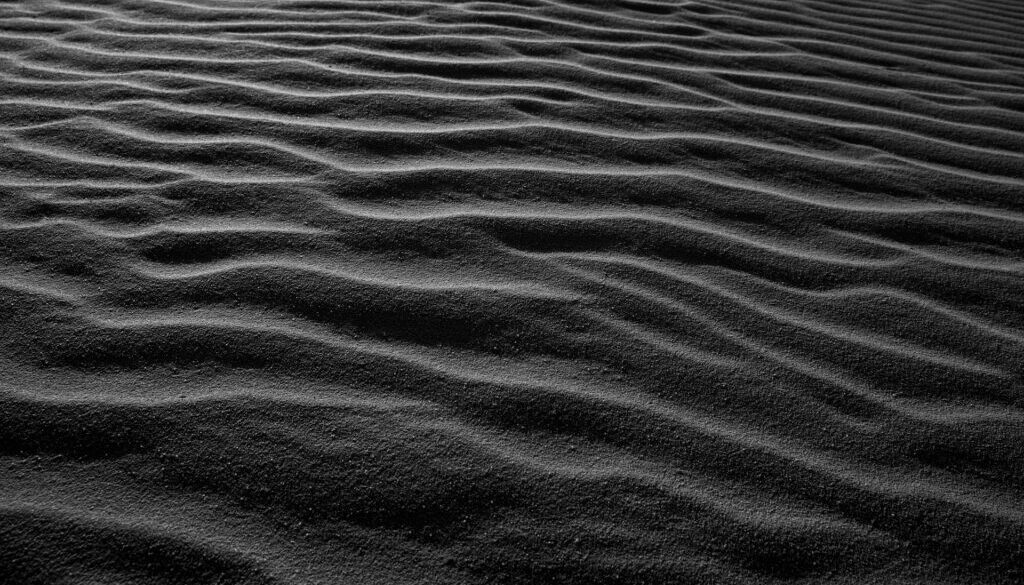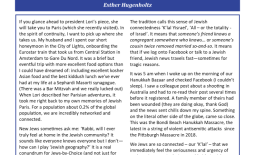A New Pharaoh
He doesn’t quite remember how he made it back. His white linen tunic was sullied and torn, his headdress had been lost in the chaos. His skin was scratched and dusty; small welts in the palms of his hands from where his anxious fingers had dug into his own skin. Sweat beaded across his shorn head, now exposed to the great eye of Egypt; both giver of life and taker of it.
Death, yes death. Balancing like the scales in the afterlife that weigh a man’s deeds. The throngs of life as the Israelites escaped; throbbing like a heart. The embrace of death as Pharaoh’s armies had followed in hot pursuit. Hooves thudded across the exposed sea floor; unrelenting walls of water on both sides closing in on the unsuspecting soldiers. He should have been there but he was strategizing with the rear guard. As his chariot approached the shore, he saw the walls of water become their graves. Above the crash of the waves, the cries of the men were barely heard.
So much death. Plague by plague had lashed the land. He and his peers had tried to reason with Pharaoh. ‘Do you not know that Egypt is lost?’ His cry was desperate, forsaking royal protocol. Is this how you addressed a god? Perhaps it was; if a god keeps on hardening his decree against that other God, the Invisible One, the One Who hears the cries of slaves and orphans. He had found his wife stumbling through the darkness. The lamps in their quarters had been dimmed for the night and he saw her silhouette against the black of sky. Shoulders hunched over, her arms filled grief made flesh; their firstborn.
Everything from that moment was blurry. He and his peers had desperately counseled Pharaoh again. ‘Let them go, Lord. For Egypt’s sake.’ He has a vague memory of collapsing prostrate before his sun-king, hot tears dripping on cool marble. His wife took the boy to the priests to commit him to the bosom of the crypt. He had sat alone at his desk, studying the papyri. Where oh where had they gone wrong?
Pushing the memory aside, he found his quarters among the royal city where his family lived. The throne sat empty now. He dragged himself up stone steps and down marble palisades. He saw sun and shade dance on stone. The door of his residence yielded to his touch and he stumbled through it, his body in searing pain after his trek through the desert. His steed had collapsed after he had ridden her hard down the king’s road. He had covered what remained on foot; his delicate leather sandals no match for the bramble of the wilderness.
His wife was now a broken beauty; a priest’s daughter, of graceful manner and fine breeding. Now, her way was empty, even as their baby daughter clawed at the hem of her robe. Her eyes widened as she saw her husband return from the realm of the dead. ‘All… all is lost’, she stammered. ‘How did you make it?’ The remainder of his memory is falling into her perfumed arms.
He awoke with a fierce ache in his bones. He was clean, perfumed and anointed, wrapped in fresh linen. His brow had been bathed with sweet water. With a mighty effort, he sat up in bed. To work, he admonished himself, and found his way to his writing table. With trembling hands, he opened his papyri. He must read and he must record. He must find the answer to why Egypt had fallen, even if he must travel to the Great Library on foot by himself.
Egypt had once been compassionate and wise. They had given food to a small tribe from distant and starving Canaan. The Hebrews, ah yes. Ancient stories of an ancestor with an Invisible God and a beautiful wife who had been welcomed at a Pharaoh’s court. Baskets of grain, dried figs and dates, cured meats, onions knotted together, even the seeds of melons and leeks had been sent back. Sustenance to share the storehouses of Ra with these foreigners and their strange God.
For days and weeks, his eyes red-rimmed and his appearance unkempt as he studied until the gods brought in the dawn.
He found references to another Pharaoh and a young Hebrew, servant of this Invisible One. As he peered over the hieroglyphics, this story was so fantastical to be near unbelievable. A boy with bold dreams, thrown into a pit by his brothers, rescued by slavers, risen to the highest of appointments at the court. Abrek, the records called him, although he had heard whispers that his tribal name was Joseph. The records were unambiguous. Abrek the Viceroy had singlehandedly saved their nation from famine. He found scrolls detailing endless lists of lands seized, harvests brought in, bushels of grains stored and redistributed when the sparse rains stopped and even the glorious Nile retreated from the sun-baked soil.
He sat at his desk, rubbing his throbbing temples and the stubble of his beard. The kingdom had welcomed these Hebrews, fed them with their surpluses and assigned them prime land for their livestock, odious though their animal husbandry was to his people. The Egyptians had allowed shrines for their Invisible One, under the all-seeing eye of Ra. The state had accorded them equal rights; their women and men could own property, be represented in court and trade in the marketplaces.
What went wrong? How did our people get from honoring Joseph to cracking a whip across their backs? He dug further, feverishly unrolling scroll after scroll until he saw lists of another kind. Columns and columns of babies cast into the Nile, scores meticulously kept, each quill stroke testifying to the blood of its victims. A new Pharaoh had arisen and fair Egypt had become cruel, murderous even. ‘Let us deal craftily with them’, this new king had sneered. The charge was that they would add themselves to Egypt’s enemies. It is what he had heard for his many years at court, in grandstanding accusations and shadowy sneers. They are different. They are not to be trusted. They will betray us. They defile our land. They eat our grain stores. Let us deal with them. Their numbers grow too large, surely we cannot have them grow larger, we must…
Deal with them.
He rose from his stool, the silk pillow slipped off the seat onto the ground. He stretched and walked towards the window. All seemed still until he heard a muffled sob come from their bedchamber. They had killed their children. Their babes and sucklings, barely delivered from the birth stool. They had been cast into the river like refuse, an afterthought. And now their little boy lay stiffly embalmed and terrifyingly lonely in the family crypt, where no silks, gems or ointments can cover their child’s cruel lot. Would his little heart too be weighed on scales before the gods? Surely, his sins were lighter than a feather…
My sins are heavy as the foundations of the pyramids, he prayed.
He had heard the Israelites chant on the other side of the shore. ‘Horse and rider He threw into the sea.’ Pharaoh had sunk like a stone on account of his sins. A wind had swept across the waters, like on the first day of Creation, and the triumphant voices of the Israelites had fallen still. Not even their enemies rejoiced over his Pharaoh’s death. Not even after hundreds of years with the whip across their backs. Not even after the babies…
He felt a hunger, a restlessness in his legs. Something needed to happen. They couldn’t go on like this. Egypt was lost. No offerings of incense, no stirring of flute and harp could sway the judgment of the gods. The carnage was complete; their crops destroyed, the dead unburied, the still-living ill, wounded or starving. Their storehouses emptied while a plague swept their land. He skidded down the steps of the royal quarters as a grey dawn stalked through the retreating night.
He found himself running, slowly at first, then gathering pace, orienting himself by the light of the moon and the silver ribbon of Nile stretched out before him.
He had heard the servants whisper. Leave, they had said. We are leaving too; going with the slave people and their Sky God, hearkener to the cries of slaves and orphans. Come with us, come and find a new life, a new covenant, where we are done with Pharaohs and pyramids. Come with us into the wilderness. He realized that he could run. Run from the memory of a soft-eyed boy with long lashes and thick curls. He could fling himself at the feet of the traitor prince, the one who spoke through fires and serpents, and repent. He could build a new world on the rubble of the old; march through the wilderness, to the mountain.
He was flying now. Be gone, Egypt, I cast aside your treacherous power and murderous greed. But then he stopped in his tracks, almost toppling over. Regaining his footing, he knew he would stay. With tears streaming across his face, he choked back hard sobs. Hoarsely he whispered: ‘you were wrong. You led us into the abyss, you hardened your heart and plunged us into the depths. But you are wrong. Egypt is not lost. We will rebuild.’
Winded, he turned around and slowly started walking back, each footfall a prayer to the old gods of Egypt and perhaps too to the new God he had felt stir in his heart, the voice in flames, the bringer of justice. We need a new Egypt, and a new Pharaoh. For centuries, we stole lives, we chained hope, but the captives have been freed and have given us the greatest gift; a deep knowing that none of us are free until all of us are free.
He walked home and to his surprise, he found himself singing; a flurry of a Hebrew line he had heard at that fateful shore. Who is like You among the gods?



